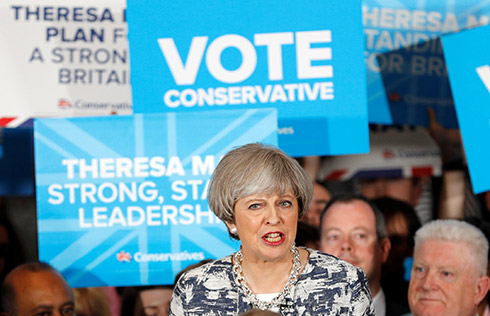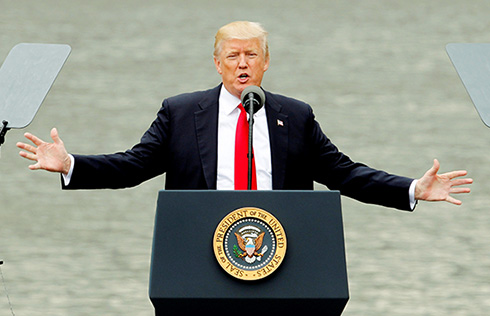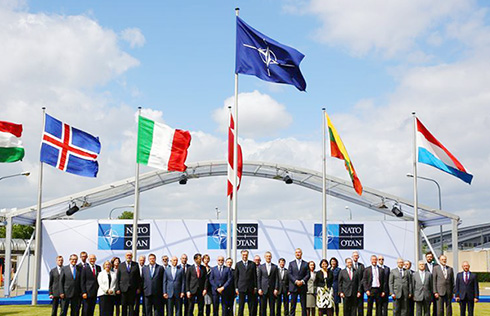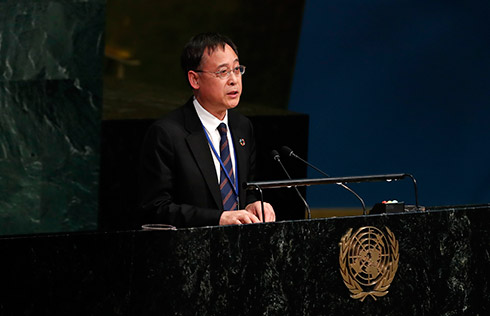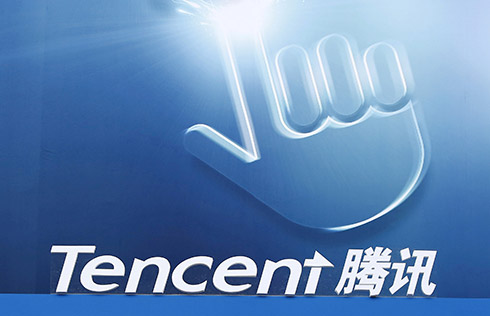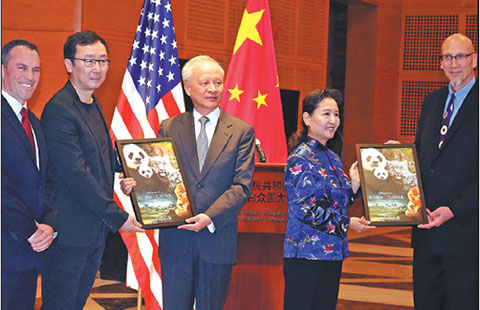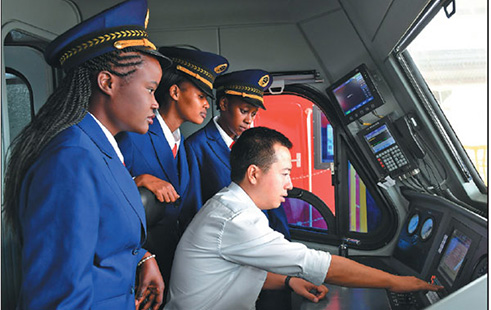China, Germany eye 3-facet cooperation to link development strategies
BEIJING -- As Chinese Premier Li Keqiang kicks off an official visit to Germany from Wednesday, the two countries are set to enhance their digitalization and other cooperation, and promote policy support and company exchanges while linking development strategies.
Unveiled in May 2015, the "Made in China 2025" plan helps transform China from a manufacturing giant into an innovation-motivated manufacturer. While Industry 4.0, a concept coined by the German federal government in 2011, aims to facilitate automation and data exchange in manufacturing technologies, including cyber-physical systems, the Internet of things and cloud computing.
Highlight of digitalization
According to IMF Managing Director Christine Lagarde, a digitalization-motivated revolution is gaining momentum and every country shall move up to take a share and gain an edge in this process.
When Li visited Germany in 2014, the two countries agreed on the importance of industrial digitalization for industry bilateral economic cooperation in the future.
The two sides also agreed to boost strategic cooperation in a more systematic manner in terms of auto cars, high-efficiency energy control, smart homes, and waste water, among others.
German Minister of Economic Affairs Brigitte Zypries argued earlier this month that the Group of 20 (G20) shall bring about inclusive digitalization and digital transformation, as digitalization will shape globalization and safeguard free trade.
Shi Shiwei, a professor from Free University of Berlin specialized in China-Germany economy and trade, told Xinhua that the two plans of "Made in China 2025" and Industry 4.0 are strategic choices made by the two nations in accordance with the trend of digitalization.
Although in different stages of development and having different priorities in developing digitalization, China and Germany are highly complementary in the manufacturing industry, offering abundant opportunities to conduct pragmatic cooperation, Shi noted.
Government sponsorship
Ministries of China and Germany set up a dialogue mechanism in 2015 and signed a trove of memorandums of understanding and cooperative agreements to promote bilateral exchanges in intelligent manufacturing.
The two countries have also established work teams to cooperate in rule-making and criteria-setting for intelligent manufacturing and Industry 4.0.
China has, since 2016, released a group of pilot projects in China-Germany cooperation to offer experiences for more such collaboration in intelligent manufacturing.
Dieter Kempf, head of the Federation of German Industries (BDI), noted that the "Made in China 2025" plan will facilitate exchanges between Chinese and German companies.
Compared with short-term stimulation, the two governments' policy support is more conducive to companies, especially to the middle- and small-sized ones in the long run, he added.
Shi noted that the public institutions of China and Germany have huge potential for cooperation in research and development areas.
Corporate cooperation
The linkage of "Made in China 2025" with Industry 4.0 has provided enormous opportunities for companies of the two sides to cooperate and expand their business.
According to Chinese Ministry of Commerce, China invested over $2.9 billion in Germany in 2016, a 258.6-percent increase year-on-year. In the same year, Germany pumped 392 projects in China with an investment volume of $2.71 billion.
Successful cases of corporate cooperation between the two countries are numerous, such as the joint exploration of Industry 4.0 in steel industry by China's Baosteel and Germany's Siemens, the smart washing machine plant developed by China's Haier and Germany's Fraunhofer Institute, and Midea Group's takeover of German robot maker Kuka earlier this year.
Wang Weidong, commercial counselor of the Chinese embassy in Germany, said the docking of "Made in China 2025" and Industry 4.0 is a process of mutual learning, which is mutually beneficial in nature.
BDI's Kempf also said the two countries' corporate cooperation on the basis of free choice has been more successful that ever. "The experience is quite positive," he said.
Tobias Simmendinger, product & market chief of Linde Hydraulics, a world leading company in hydraulics that was acquired by China's Weichai Power Company, said the acquisition is widely seen as a classic case of win-win cooperation.
"We have benefited from the Chinese side's Customer First slogan and its high-class after-sales service, and have been deeply impressed by the Chinese side's fast strategy adjustment and flexible operation," he said. "Thanks to Weichai's wide sales network in China and perfect after-sales service, Linde has seen a sharp rise of its product sales in China."
- Premier Li visits Germany, Belgium, attends the China-EU Leaders' Meeting
- Chinese premier calls for better relations with Germany via upcoming visit
- Premier Li calls for stable development of China-Germany ties
- Experimental Peking opera 'Faust' starts premiere tour in Germany
- Premier: Germany an important partner in Europe







